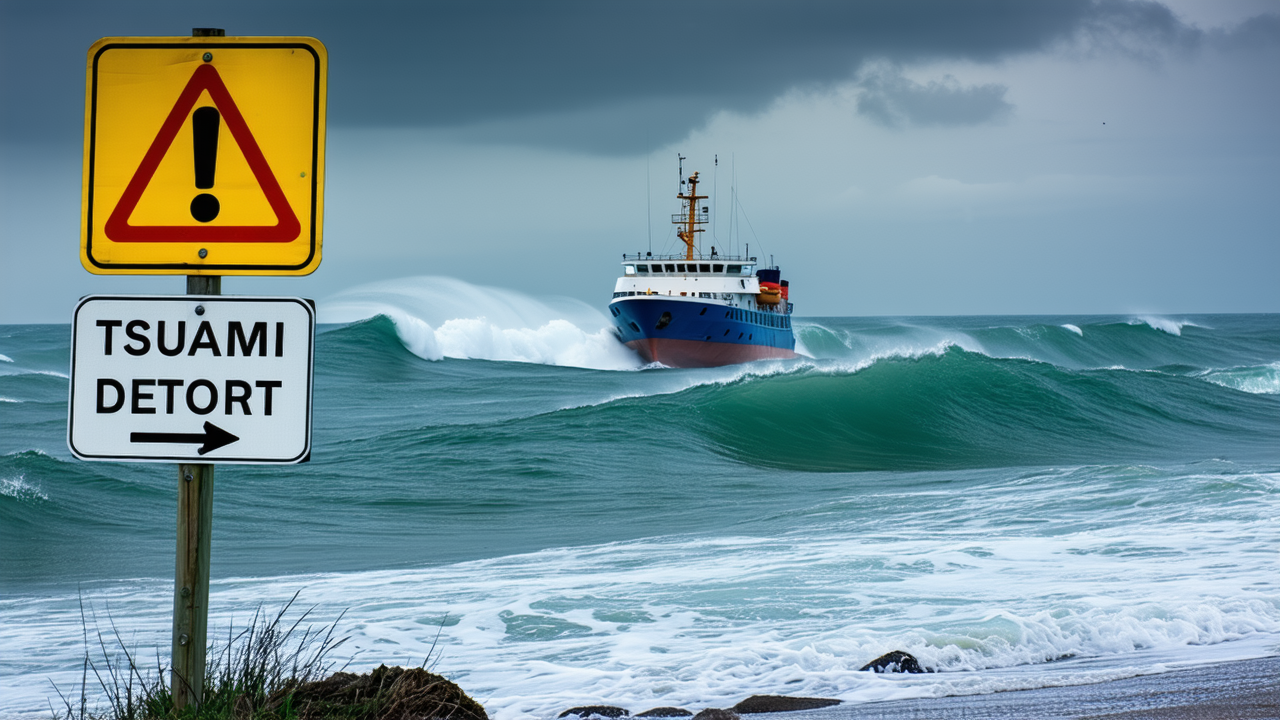Cook Strait Ferries Detoured, Boaties Warned After Major Earthquake and Tsunami Threat
Cook Strait Ferries Detoured, Boaties Warned After Major Earthquake and Tsunami Threat
A powerful 8.8 magnitude earthquake off the remote east coast of Russia has triggered a wave of tsunami alerts across multiple countries, including New Zealand, several Pacific nations, the United States, Canada, and parts of South America. This quake, which is tied for the sixth strongest ever recorded, has brought authorities on high alert, prompting emergency measures and significant disruptions to maritime and coastal communities.
The National Emergency Management Agency (NEMA) has issued warnings about strong and unusual currents and unpredictable surges that could continue for several hours and potentially persist into the next day. Authorities have emphasized that the threat must be regarded as real until further notice, and no significant developments have been reported overnight.
In New Zealand, the earliest tsunami waves were predicted to reach the east coast of the North Island around midnight, with varying arrival times across the country. In Northland, the forecasted tsunami activity coincided with high tide, raising concerns about potential impacts. Further south, Bluff was not expected to see the first waves until at least 4:46 a.m.
Despite the alerts, no damage has been reported so far, according to online webcams monitored by RNZ overnight. However, authorities have urged boaties not to remain on their vessels due to the unpredictable nature of the tsunami waves. In Auckland, four Civil Defence Centres were opened to accommodate those living on boats and without alternative accommodation, remaining open until 8 a.m. on Thursday.
KiwiRail took swift action to ensure safety, detouring some Cook Strait ferries overnight. This added approximately 40 minutes to three Interislander sailings. The Marlborough harbourmaster ordered all ferries traveling to Picton to use the northern entrance of Marlborough Sound instead of Tory Channel, from 10 p.m. on Wednesday. The channel is expected to be reassessed for reopening at 6 a.m. on Thursday.
While some regions have begun to lift their tsunami warnings, others have issued new ones. In French Polynesia, waves as high as four meters were forecast, and in Colombia, evacuations were ordered along its Pacific coast. Chilean authorities issued a red alert for Easter Island, highlighting the widespread nature of the threat.
New Zealand's Ministry of Foreign Affairs has urged citizens in affected areas to follow local authorities' advice and maintain communication with family and friends back home. As the situation unfolds, communities across the Pacific are bracing for the potential impacts of this powerful earthquake and its associated tsunami.
This event underscores the importance of preparedness and the need for continuous monitoring of seismic activity, especially in regions prone to such natural disasters. As the world watches, the focus remains on ensuring the safety of those most vulnerable and minimizing the potential for disaster.
